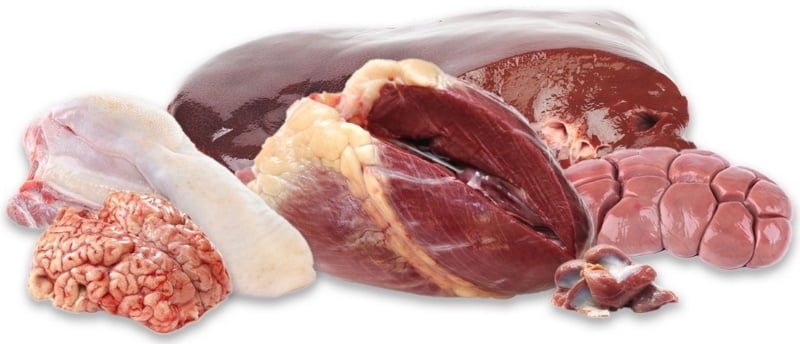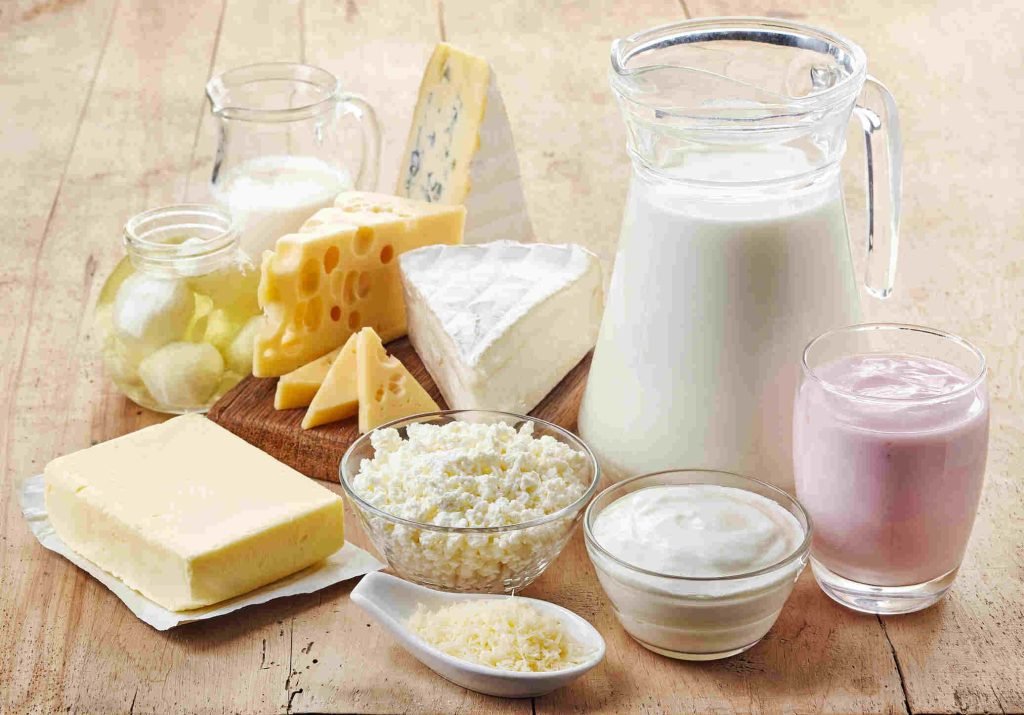Introduction:
What Foods Cause Inflammation Of The Joints often associated with arthritis, can cause significant pain, discomfort, and reduced mobility. Certain foods have been found to exacerbate inflammation, leading to worsening symptoms for those suffering from conditions like osteoarthritis and rheumatoid arthritis. Understanding which foods to avoid can be crucial for managing inflammation and maintaining joint health. This article will explore the foods known to cause inflammation of the joints and why they should be limited or avoided.
1.Refined Carbohydrates and Sugars
Refined carbohydrates, such as white bread, white rice, and pastries, are quickly broken down into sugars by the body. This rapid digestion process causes a spike in blood sugar levels, leading to the release of pro-inflammatory cytokines. Foods high in sugar, such as soda, candy, and baked goods, can trigger the body’s inflammatory response. Excessive sugar consumption not only promotes inflammation but also contributes to weight gain, which can put additional pressure on already stressed joints.
2.Trans Fats
Trans fats are a type of unhealthy fat found in many processed and fast foods. These fats are known to increase levels of low-density lipoprotein (LDL) cholesterol and decrease high-density lipoprotein (HDL) cholesterol, leading to inflammation. Common sources of trans fats include margarine, baked goods like cookies and cakes, and fried foods such as French fries and doughnuts. The American Heart Association recommends avoiding trans fats altogether due to their association with increased inflammation and heart disease risk.
3.Omega-6 Fatty Acids
While omega-6 fatty acids are essential in small amounts for overall health, an imbalance between omega-6 and omega-3 fatty acids can lead to inflammation. Omega-6 fatty acids are commonly found in corn oil, sunflower oil, soybean oil, mayonnaise, and many processed snacks. When consumed in excess, omega-6 fatty acids can promote the production of inflammatory chemicals in the body. To balance omega-6 intake, individuals should focus on incorporating more omega-3-rich foods like fish, flaxseeds, and walnuts into their diet.
4.Red and Processed Meats
Red meats, such as beef, lamb, and pork, contain high levels of saturated fats, which can trigger inflammation. Processed meats, including bacon, sausage, and deli meats, are also rich in advanced glycation end products (AGEs). AGEs are compounds formed when meats are cooked at high temperatures, such as grilling or frying. These compounds can increase oxidative stress and inflammation within the body. Limiting red and processed meats and opting for lean protein sources like poultry, fish, and plant-based proteins can help reduce inflammation.
5.Dairy Products
For some individuals, dairy products can cause inflammation and joint pain, particularly those with a sensitivity to casein, the protein found in milk. Foods like cheese, butter, and ice cream may contribute to inflammatory responses in people who are lactose intolerant or sensitive to dairy proteins. However, it’s worth noting that not everyone reacts the same way to dairy, and some studies suggest that fermented dairy products like yogurt may have anti-inflammatory effects.
6.Gluten and Refined Grains
Gluten, a protein found in wheat, barley, and rye, can cause inflammation in people with gluten intolerance or celiac disease. Even individuals without these conditions may experience low-grade inflammation after consuming gluten, particularly in the form of refined grains. Foods like white bread, pasta, and other refined grain products can trigger inflammation. Opting for whole grains such as quinoa, brown rice, and oats can provide a healthier alternative while minimizing inflammation.
7.Alcohol
Excessive alcohol consumption is known to increase inflammation and contribute to joint pain. Alcohol can disrupt the gut barrier, leading to the release of toxins that promote inflammation throughout the body. Additionally, alcohol can increase uric acid levels, which is particularly problematic for individuals with gout, a form of arthritis characterized by severe joint inflammation. Moderation is key, and reducing alcohol intake can significantly lower inflammation levels.
8.Artificial Additives and Preservatives
Artificial additives, including monosodium glutamate (MSG) and aspartame, are common in processed foods and can trigger inflammatory responses in some individuals. These additives can increase the body’s production of pro-inflammatory cytokines, exacerbating joint pain and inflammation. Reading food labels and avoiding products with artificial ingredients can help reduce the risk of inflammation.
9.Fried Foods

Fried foods are typically cooked in unhealthy oils, often containing high levels of omega-6 fatty acids and trans fats. The high-temperature cooking process also generates AGEs, which contribute to inflammation. Reducing the consumption of fried foods like chicken wings, French fries, and onion rings can help manage inflammation and joint pain.
10.Excessive Salt Intake
A diet high in salt can lead to water retention and increased blood pressure, both of which can worsen inflammation. Packaged and processed foods, such as chips, canned soups, and frozen dinners, often contain high sodium levels. Reducing salt intake and opting for fresh, whole foods can help lower inflammation and improve joint health.
Conclusion
Understanding the link between diet and joint inflammation can empower individuals to make healthier food choices. By limiting or avoiding these inflammation-causing foods, it is possible to reduce pain, improve joint function, and enhance overall well-being. A balanced diet rich in anti-inflammatory foods, such as fruits, vegetables, whole grains, lean proteins, and healthy fats, can be a crucial part of managing joint inflammation and supporting long-term health.
Does corn cause joint inflammation?
Corn itself does not inherently cause joint inflammation for most people. However, corn and corn-based products can contribute to inflammation in certain cases, especially when they are highly processed or consumed in excess. Here’s how corn may be linked to joint inflammation:
1.Omega-6 Fatty Acids Content
Corn is high in omega-6 fatty acids, particularly when consumed as corn oil, which is commonly used in cooking and processed foods. This imbalance can promote the production of pro-inflammatory compounds in the body. Many people consume a diet that is already heavy in omega-6-rich oils, so adding more through corn oil can potentially worsen inflammation.
2.Processed Corn Products
Processed corn products, such as corn syrup, corn chips, and high-fructose corn syrup (HFCS), are more likely to cause inflammation. These products are high in refined carbohydrates and sugars, which can spike blood sugar levels and trigger the release of inflammatory cytokines. For people with arthritis or other inflammatory conditions, consuming these processed foods may exacerbate symptoms.
3.Potential Allergic Reactions
Some individuals may have a corn allergy or sensitivity, which can cause an immune response that leads to inflammation, including joint inflammation. Symptoms of a corn allergy can range from mild to severe and may include joint pain in some cases. If someone experiences joint pain after consuming corn, it could be due to an allergic or sensitivity reaction.
4.Genetically Modified Organisms (GMOs)
Most of the corn grown in the United States is genetically modified. While research on the direct impact of GMOs on inflammation is limited, some people prefer to avoid genetically modified corn due to concerns about potential inflammatory effects. However, more research is needed to establish a definitive link between GMO corn and joint inflammation.
Conclusion
Corn in its natural form, such as fresh corn or whole grain corn products, does not generally cause joint inflammation for most people. However, processed corn products, high corn oil intake, and corn allergies or sensitivities can potentially contribute to inflammation. For individuals concerned about joint health and inflammation, it’s best to focus on a balanced diet that minimizes processed foods and includes a variety of anti-inflammatory foods like fruits, vegetables, lean proteins, and healthy fats.
Does Cheese Cause Inflammation in the Joints?
Cheese, a staple in many diets around the world, is loved for its flavor and versatility. However, it has also been a topic of debate regarding its effects on inflammation, particularly joint inflammation. For individuals with conditions such as arthritis, understanding whether cheese contributes to inflammation is crucial for managing pain and symptoms. This article explores the relationship between cheese consumption and joint inflammation, examining the components of cheese that may influence inflammatory responses.
1.Saturated Fat Content in Cheese
What Foods Cause Inflammation Of The Joints One of the primary concerns with cheese and inflammation is its high saturated fat content. Saturated fats are known to increase levels of low-density lipoprotein (LDL) cholesterol in the body. Elevated LDL cholesterol can lead to the production of inflammatory markers, which may worsen joint inflammation for those suffering from arthritis or other inflammatory conditions. Common types of cheese high in saturated fats include cheddar, gouda, and Parmesan.
While not everyone may experience increased inflammation from saturated fats, people with inflammatory conditions like rheumatoid arthritis might find that reducing their intake of high-saturated-fat cheeses helps alleviate joint pain and inflammation.
2.Dairy Protein Sensitivity
Cheese contains casein, a protein found in milk that can trigger inflammation in some individuals. Those who are sensitive to casein or have an intolerance to dairy products may experience an immune response that leads to joint inflammation, among other symptoms. While not as severe as an allergy, casein sensitivity can still result in discomfort, including joint pain and swelling. Soft cheeses like cottage cheese, cream cheese, and mozzarella have a higher moisture content and may be less inflammatory than hard, aged cheeses that are more concentrated in casein.
People with lactose intolerance might also experience inflammatory symptoms from consuming cheese, although this is less common. Unlike milk, many types of cheese contain low levels of lactose, but some individuals may still have a mild reaction that could contribute to inflammation.
3.Impact of Processed Cheese
Processed cheeses, such as American cheese, cheese spreads, and pre-packaged shredded cheese, often contain additives, preservatives, and artificial ingredients that can promote inflammation. These ingredients, such as artificial colors and flavors, emulsifiers, and added sugars, may trigger the body’s inflammatory response. The consumption of highly processed cheese products could potentially exacerbate joint inflammation in sensitive individuals. Opting for natural, minimally processed cheeses without additives can help reduce this risk.
4.Advanced Glycation End Products (AGEs)
Advanced glycation end products (AGEs) are compounds that form when proteins or fats combine with sugar in the bloodstream. They are often found in high amounts in aged and processed cheeses. AGEs can contribute to inflammation and oxidative stress in the body, leading to increased joint pain and swelling. High levels of AGEs are linked to various inflammatory conditions, including arthritis. To reduce the intake of AGEs, individuals should consider limiting consumption of aged cheeses such as blue cheese, brie, and gouda.
5.Cheese and Gut Health Connection
The gut microbiome plays a significant role in regulating inflammation in the body. Certain types of cheese, such as those that are fermented, contain probiotics that can have a beneficial effect on gut health and potentially reduce inflammation. Cheeses like feta, cottage cheese, and certain types of aged cheese with live cultures may help improve gut health, which in turn could help manage inflammation. However, for those with a compromised gut or sensitivity to dairy, even these potentially beneficial cheeses might still trigger inflammation.
6.Individual Variation in Response
It is essential to note that not all individuals respond to cheese in the same way. While some people may experience joint inflammation after consuming cheese, others may not have any adverse reactions. Factors such as genetics, existing health conditions, overall diet, and lifestyle play a significant role in determining whether cheese consumption will lead to inflammation. Keeping a food diary can help identify any patterns between cheese intake and joint pain or discomfort.
7.Balancing Cheese in an Anti-Inflammatory Diet
For those who love cheese but want to minimize the risk of inflammation, there are strategies to incorporate cheese into an anti-inflammatory diet. Opting for low-fat cheese options, such as part-skim mozzarella, goat cheese, or ricotta, can help reduce saturated fat intake. Including cheeses that are rich in probiotics can also support gut health, potentially counteracting inflammatory effects.
Additionally, balancing cheese consumption with anti-inflammatory foods like fruits, vegetables, whole grains, fatty fish (rich in omega-3 fatty acids), nuts, and seeds can help manage inflammation levels. Moderation is key, and paying attention to how cheese affects your body can guide dietary choices.
Conclusion
Cheese can cause inflammation in the joints for some people, particularly due to its saturated fat content, potential for dairy protein sensitivity, and the presence of AGEs in aged and processed varieties. However, the impact of cheese on joint inflammation varies widely among individuals. For those with arthritis or other inflammatory conditions, monitoring cheese consumption and choosing lower-fat, minimally processed options may help manage inflammation. Balancing cheese intake with a diet rich in anti-inflammatory foods is crucial for maintaining joint health and overall well-being.
What proteins should I avoid for arthritis?
What Foods Cause Inflammation Of The Joints Arthritis is a common condition characterized by inflammation of the joints, which can lead to pain, swelling, and reduced mobility. Diet plays a crucial role in managing arthritis symptoms, and while proteins are essential for overall health, certain types can exacerbate inflammation and worsen arthritis symptoms. Understanding which proteins to avoid can help those with arthritis reduce joint pain and inflammation. In this article, we will explore which proteins may be problematic for arthritis sufferers and why they should be limited or avoided.
1.Red Meats
Red meats, such as beef, lamb, and pork, are high in saturated fats and have been linked to increased inflammation in the body. Saturated fats can trigger the production of pro-inflammatory cytokines, which are proteins that promote inflammation and can worsen arthritis symptoms. Moreover, red meats are high in advanced glycation end products (AGEs), which are compounds formed when meats are cooked at high temperatures (grilling, frying, broiling). AGEs increase oxidative stress and inflammation in the body, potentially exacerbating arthritis symptoms. For those with arthritis, it is advisable to limit the intake of red meats and opt for leaner protein sources instead.
2.Processed Meats
Processed meats, including sausages, hot dogs, bacon, deli meats, and ham, are particularly harmful for people with arthritis. These meats are often high in saturated fats, sodium, and preservatives such as nitrates and nitrites. Sodium and preservatives can trigger inflammation and increase water retention, leading to swollen joints and more pain. Additionally, like red meats, processed meats are also high in AGEs, which can worsen inflammatory responses in the body. Reducing or eliminating processed meats from your diet can help decrease overall inflammation and alleviate arthritis symptoms.
3.Fried and Breaded Proteins
Fried and breaded proteins, such as fried chicken, fish sticks, and chicken nuggets, are cooked in unhealthy oils that are high in trans fats and omega-6 fatty acids. Trans fats are known to raise levels of LDL (bad) cholesterol and lower HDL (good) cholesterol, promoting inflammation throughout the body. While omega-6 fatty acids are essential in moderation, an excessive intake can lead to an imbalance between omega-6 and omega-3 fatty acids, further driving inflammation. People with arthritis should avoid fried and breaded proteins and choose healthier cooking methods like grilling, baking, or steaming to reduce inflammation.
4.High-Fat Dairy Products
Dairy products like cheese, whole milk, and full-fat yogurt are rich in saturated fats, which can increase inflammation in some individuals. While dairy is a good source of protein and calcium, for some people with arthritis, high-fat dairy can exacerbate symptoms due to its pro-inflammatory potential. Individuals with lactose intolerance or casein sensitivity may also experience an inflammatory response, leading to joint pain and discomfort. Opting for low-fat or fat-free dairy alternatives, such as almond milk, soy milk, or low-fat cheese, may help reduce inflammation.
5.Shellfish and Organ Meats

Shellfish (such as shrimp, lobster, and crab) and organ meats (such as liver, kidney, and brain) are high in purines, which can break down into uric acid in the body. Elevated levels of uric acid can lead to the development of gout, a form of arthritis characterized by sudden and severe joint pain, especially in the big toe. People who are prone to gout or already have the condition should avoid high-purine foods to prevent gout flare-ups and joint inflammation. Choosing lean proteins like chicken, turkey, and plant-based proteins can help manage uric acid levels and reduce gout risk.
6.Protein-Rich Foods High in Sugar
Certain protein-rich foods that are also high in sugar, such as flavored yogurt, protein bars, and some commercial protein shakes, can contribute to inflammation. Excess sugar consumption is associated with increased inflammatory markers in the body. High sugar intake can lead to weight gain, which puts additional stress on the joints, further worsening arthritis symptoms. For those with arthritis, it’s important to choose plain or low-sugar options and focus on whole food sources of protein, such as lean meats, beans, lentils, and nuts.
7.Proteins Containing Gluten
While gluten is a protein found in wheat, barley, and rye, it can cause an inflammatory response in people with gluten sensitivity or celiac disease. Even in individuals without these conditions, gluten may cause low-grade inflammation in some cases, potentially aggravating arthritis symptoms. Foods that contain gluten, such as wheat-based bread, pasta, and cereals, may be problematic for some people with arthritis. Consider experimenting with a gluten-free diet to see if it helps alleviate joint pain and inflammation. Alternative protein sources like quinoa, brown rice, and gluten-free oats can be included in a balanced diet.
8.Artificial and Processed Protein Supplements
Many commercial protein supplements, such as protein powders, bars, and shakes, contain artificial ingredients, preservatives, and added sugars that can promote inflammation. These additives can increase oxidative stress in the body, potentially leading to increased joint pain and swelling. When choosing protein supplements, it is crucial to look for products with minimal ingredients, no added sugars, and no artificial additives. Plant-based protein powders made from pea, hemp, or brown rice proteins can be a healthier alternative for those with arthritis.
Conclusion
What Foods Cause Inflammation Of The Joints For individuals with arthritis, choosing the right types of protein is essential for managing inflammation and reducing joint pain. Proteins such as red meats, processed meats, fried and breaded foods, high-fat dairy, shellfish, organ meats, and gluten-containing foods may exacerbate inflammation and worsen arthritis symptoms. Instead, focus on consuming lean protein sources like chicken, turkey, fish, beans, lentils, nuts, and low-fat dairy options. By making mindful protein choices and avoiding those that trigger inflammation, it is possible to improve joint health and quality of life for those living with arthritis. Create an authentic butter chicken with tender chicken in a rich, creamy tomato sauce, infused with Indian spices. Perfect comfort food! A high blood pressure diet includes leafy greens, berries, whole grains, lean proteins, nuts, seeds, and low-sodium meals.
As an Amazon Associate, We earn from qualifying purchases. When you purchase a product through Amazon links on kitchenadvising.com, we may earn a small commission at no extra cost to you. This helps support the site and keep our content free.


